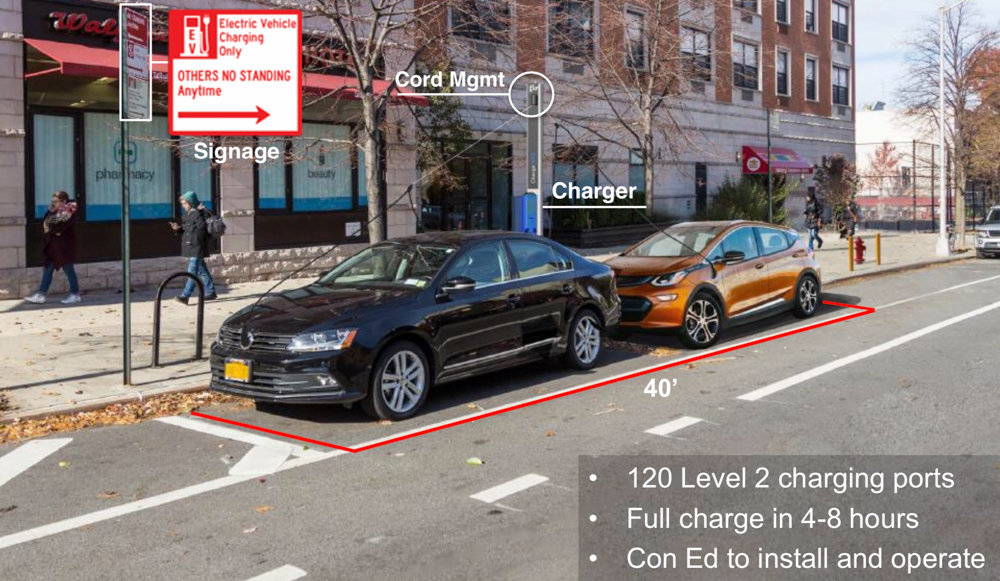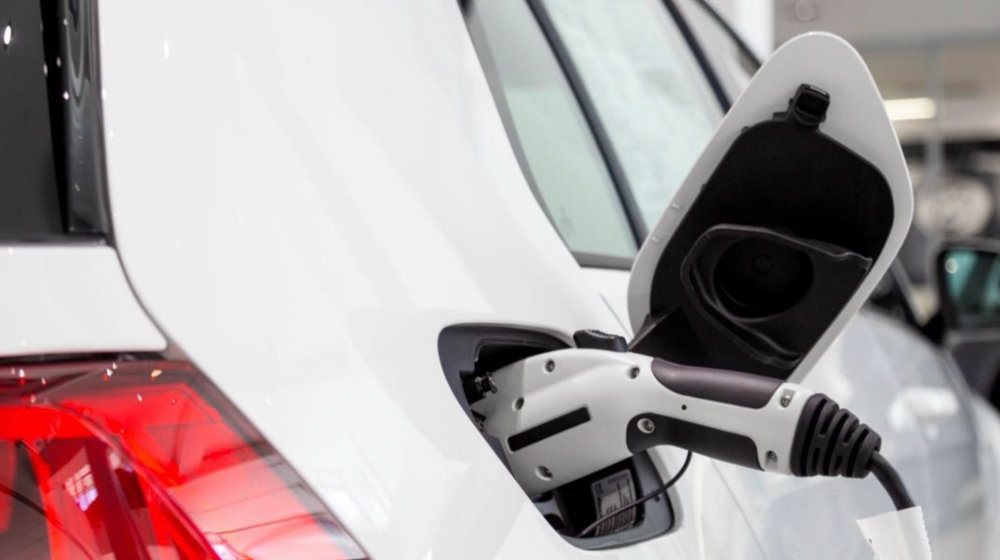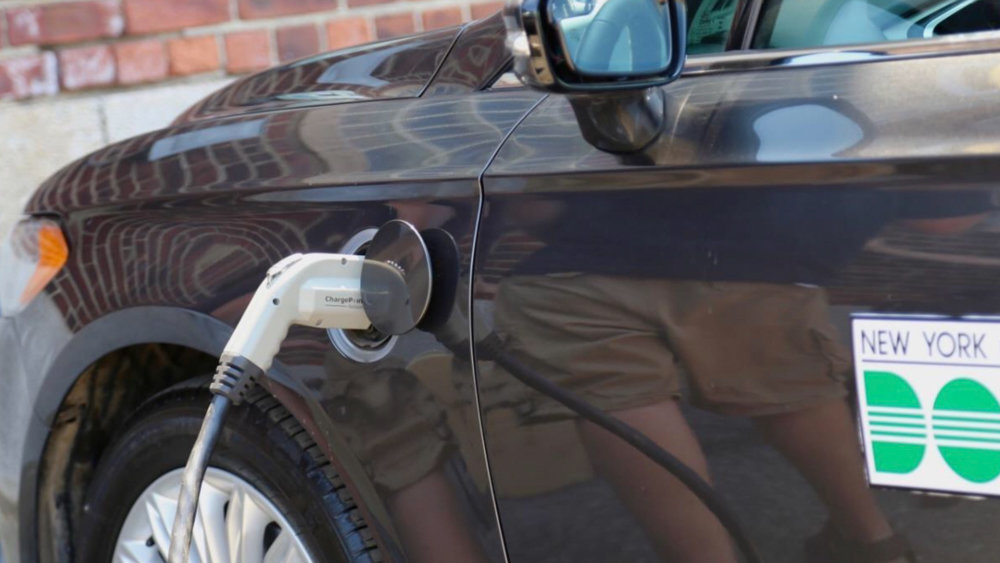Electric car charging station talk runs out of juice
The city’s transportation department is eyeing three sites within the boundaries of Community Board 8 for installation of curbside electric vehicle charging stations. But such a proposal has had an icy reception from CB8’s traffic and transportation committee, putting discussion on hold.
The city plans to install 100 curbside charging stations in the five boroughs that drivers can simply park near and connect their electric vehicle. The type of outlet, according to DOT electric vehicle policy director Mark Simon, would be “type 2,” similar to what’s used for washing machines.
Such connections can fully charge a car battery within four to eight hours. Users would swipe a credit or debit card, and can go about their business for the day while the electricity flows into their car’s batteries. The station notifies the driver automatically through his or her smartphone once charging is complete, and the vehicle can then be moved to avoid additional fees while allowing other drivers to use the charger.
Officials are considering installations at Manhattan College, the Van Cortlandt Park pool and near the Croton Aqueduct Trail on Dickinson Avenue, and in Kingsbridge at the lower Riverdale commercial district near West 233rd Street.
“We want to be near major institutions — educational, medical centers, commercial activity,” Simon said.
“It would need high visibility so there’s turnover, so we have multiple users by someone attending that institution during one shift, and maybe resident users at night.”
The chargers look like tall poles mounted on the curb by a metered or alternate side parking area.
Because which side the charger connection isn’t standard on electric vehicles, the charging cords would have enough length to reach the far side of the vehicle.
“As a lot of you know, transportation is a really large source of greenhouse gas emissions in the city,” said Nate Kimball, policy advisor for the mayor’s sustainability office. “The administration recently announced a plan to get us to carbon neutral by 2050, so we need to make a lot of emission reductions, and there are a lot of places to do that.”
Passenger cars make up the vast majority of greenhouse gas emissions in the city. Even though gasoline-powered cars become more fuel-efficient every year, it’s still not enough to hit the city’s environmental targets in time. City officials want people to drive electric vehicles, but in a city where half of all drivers park on the street, charging batteries can be tricky, Kimball said.
The transportation department has approached elected officials and community boards in each borough to outline the proposal and discuss where best to locate the curbside chargers, DOT intergovernmental affairs assistant director Felicia Tunnah said.
The four-year project could help the city decide how it might want to pursue installing more such chargers in the future.
Parking at the charging stations will be for electric vehicles only. Current parking rules — like meters and parking period lengths — will likely still apply to these spots, Tunnah said. But only vehicles connected to the charger will be considered legally parked.
Although the plan sounded solid and the goal noble, committee members were concerned about answers the DOT team did not have.
“How are you going to pick the site in CB8?” committee chair Dan Padernacht asked. “I see that you’ve got three sites identified. How is that choice going to be made? Are you going to all three, or just one of the three?”
Traffic, location, turnover and electric vehicle ownership will be the main criteria officials will consider, Tunnah said.
“We haven’t decided yet if we’re going to do four spots in one and four spots in another, or eight spots in one and zero in another,” she said. “We definitely want to know your feedback.”
Parking reserved exclusively for electric vehicles that would stand overnight, connected to a charger even after their batteries were full, seemed like a waste, Padernacht said. Especially in neighborhoods woefully lacking overnight parking for existing vehicles.
“It’s definitely an amenity,” Tunnah said. “We’re trying to go throughout the city. We see it as an amenity.”
“You see it as an amenity,” Padernacht said. “Somebody circling for two hours looking for a legal parking space sees it as a real pain in the behind. We have the amenity during the day, it’s just that overnight parking which is always an issue in our community board. At night, you’re not really using the amenity because cars parked overnight are already fully charged after four or six hours.”
Eric Dinowitz, another committee member who is running against Padernacht for a city council seat set to open in 2021, said the community needs these stations to spur people to buy electric vehicles. Yet he felt some of the plan’s details weren’t fully fleshed out.
“And I’m still not clear on this overnight parking,” Dinowitz said. “Like, if you stay longer than your car needs, you’re not going to do that for overnight parking. That won’t count for overnight?”
“Correct,” Simon said. “If your car is full at midnight, we’re not going to make you pay a penalty from midnight until you move it at 7 a.m.”
But would the restricted hours be the same as the meter? Would electric vehicle owners pay the meter after 7 p.m.? Would that be the same cut-off time for charging penalty?
Ultimately, committee members agreed to shelve any further discussion about the proposal until a later meeting when officials can return with what they hoped would be more concrete answers.











